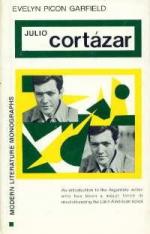|
This section contains 5,193 words (approx. 18 pages at 300 words per page) |

|
SOURCE: McNab, Pamela. “Julio Cortázar's Axolotl: Literary Archaeology of the Unreal.” The International Fiction Review 24, nos. 1-2 (1997): 12-22.
In the following essay, McNab asserts that Cortázar's depiction of the unreal in “Axolotl” was “inspired by a variety of literary sources, both classical and modern.”
“Axolotl” (Final del juego, “end of the game”), one of Julio Cortázar's masterpieces, chronicles one man's discovery of the axolotls, rather unusual-looking amphibians, his growing obsession with them and, ultimately, his supposed transformation into an axolotl. One of the better known and most frequently analyzed of all Cortázar's stories, “Axolotl” quickly establishes and perpetuates an aura of ambiguity surrounding the narrator and the axolotls which causes the reader to question the nature of reality.1 Consequently, the text's openness has fueled interpretive speculation with regard to a wide variety of topics, ranging from religion and Aztec mythology to philosophy and psychology...
|
This section contains 5,193 words (approx. 18 pages at 300 words per page) |

|


